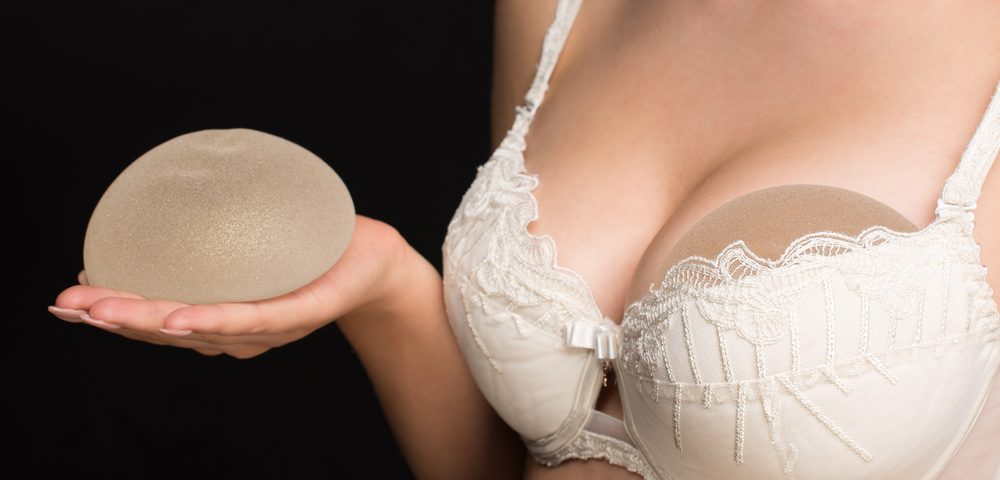Allergan has issued a worldwide recall of its BIOCELL textured breast implant products, due to the potential risk of breast implant-associated anaplastic large cell lymphoma (BIA-ALCL).
The recall — for Allergan’s proprietary textured breast implants and tissue expanders — follows a request by the U.S. Food and Drug Administration (FDA), after a recent global safety update indicated an increase in the number of cases and deaths associated with BIA-ALCL.
BIA-ALCL is a rare type of lymphoma that may develop around implants, and occurs more frequently in women who have breast implants with textured surfaces.
The recall was issued as a precaution, after the global safety update showed a total of 573 cases of BIA-ALCL, and 33 deaths, were reported to the FDA as of July 6. That corresponds to an increase of 166 cases and 24 deaths compared with the agency’s last update on February 6.
The report indicated that 481 of the 573 cases of BIA-ALCL were caused by Allergan’s breast implants.
Moreover, of the 13 patients who passed away due to BIA-ALCL whose implant manufacturer was known, 12 were confirmed to have an Allergan breast implant.
Based on these data, the FDA has estimated that a person who has Allergan’s Biocell textured implant has a risk of developing BIA-ALCL that is approximately six times higher than those who have textured breast implants from other manufacturers in the U.S.
“Although the overall incidence of BIA-ALCL appears to be relatively low, once the evidence indicated that a specific manufacturer’s product appeared to be directly linked to significant patient harm, including death, the FDA took action to alert the firm to new evidence indicating a recall is warranted to protect women’s health,” Amy Abernethy, MD, PhD, principal deputy commissioner of the FDA, said in a press release.
“We will continue to monitor the incidence of BIA-ALCL across other textured and smooth breast implants and tissue expanders as well as other devices intended for use in the breast. If action is needed in the future, we will not hesitate to do what is necessary to protect patients,” Abernethy added.
Following the FDA’s request, Allergan launched a worldwide recall for several of its Biocell textured breast implants. The recall includes Natrelle Saline-Filled breast implants, Natrelle Silicone-Filled breast implants, Natrelle Inspira Silicone-Filled breast implants, and Natrelle 410 Highly Cohesive Anatomically Shaped Silicone-Filled breast implants.
In addition to textured breast implants, the recall targets certain tissue expanders, which are devices used by patients before breast augmentation or reconstruction to prepare the tissue to receive an implant. Among the recalled expanders are the Natrelle 133 Plus Tissue Expander, and Natrelle 133 Tissue Expander with Suture Tabs. For a complete list of the recalled products, please visit FDA’s webpage.
Importantly, the recall does not include Allergan’s Natrelle smooth or Microcell breast implants and tissue expanders.
With the global recall underway, any unused products stored at suppliers and distributors will be immediately removed from the market to ensure patient safety.
In addition, the FDA is planning to take a series of actions to make sure that women considering breast augmentation or reconstruction surgery know the risks associated with breast implants. The FDA wants to make sure women are aware of warning signs, including breast swelling and pain.
These new actions may include changes to the product labels of breast implants. The FDA may require that a box warning and patient decision checklist be added to help women balance the benefits versus risks of having breast implants. The goal is to help women make an informed decision.
“We understand that today’s news may be alarming to some patients with breast implants. In the safety communication issued today, we’re providing actionable information for individuals with specific breast implants and their health care professionals. The FDA does not recommend removal for patients without symptoms due to potential risks, but we provide helpful information for patients and providers to consider when discussing next steps,” said Jeff Shuren, MD, JD, director of the FDA’s Center for Devices and Radiological Health.
“Moving forward, we are committed to continuing to share updates with patients about this issue. We will continually evaluate any new information and may, as a result, take action regarding other breast implants, if warranted. In addition, we are continuing our assessment to determine whether the risk of developing BIA-ALCL is limited to specific models of textured, or all textured breast implants. We continue to advise women and health care professionals that the use of breast implants is associated with a risk of developing BIA-ALCL and that the risk is greater with textured implants,” he added.
The agency is encouraging all healthcare professionals and patients to report any adverse events related to the use of breast implants and tissue expanders.


